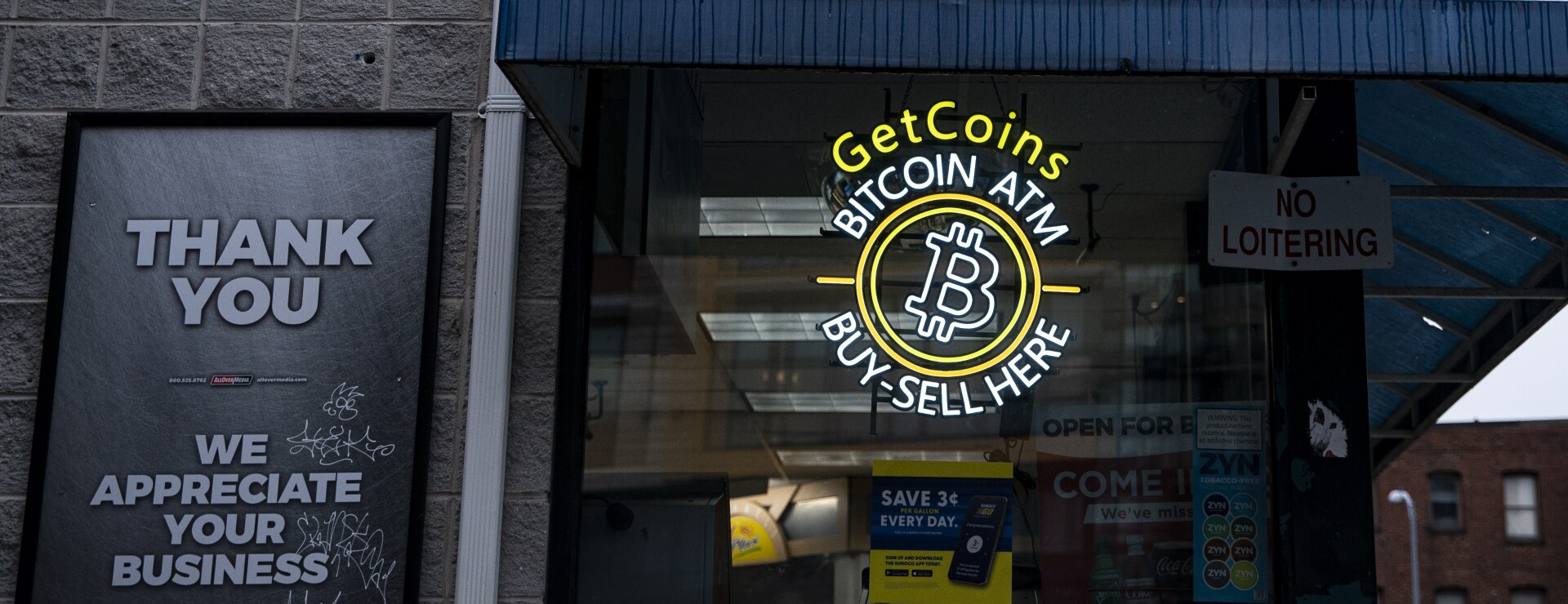Regulation
Crypto Counteroffensives Highlight Need for Regulation

A potential new trend in crypto litigation has begun to emerge as private companies and industry-related nonprofits begin filing complaints against the Securities and Exchange Commission. Complaints aim to protect complaining companies from coercive measures. Importantly, they also highlight the need for regulation.
Ultimately, it is the SEC and the Commodity Futures Trading Commission, not the courts, that are best positioned to provide clarity to businesses in this complex and evolving space.
The plaintiffs seek declaratory and injunctive relief in complaints filed in Texas federal courts by Lejilex and Crypto Freedom Alliance of Texas and by Beba LLC and DeFi Education Fund. Lejilex describe itself as “a non-custodial digital asset exchange platform that allows users to trade digital assets through the use of underlying smart contracts” in “blind bid/sell transactions “.
It seeks to avoid being required to register “as a securities exchange, broker or clearing agency”. And the complaint in Beba LLC describes the lead plaintiff as a small online clothing company that has “incorporated digital assets into its business” and distributed its BEBA token for free via an airdrop.
This complaint alleges that the SEC will “take the position that BEBA tokens are investment contracts and that the airdrop is a securities transaction.” Both complaints argue that the SEC lacks jurisdiction to take enforcement action against them.
The main allegations in these two cases are similar to arguments made by defendants in recent cases in the U.S. District Court for the Southern District of New York, including SEC vs. Ripple Labs, SEC vs. Terraform LabsAnd SEC vs. Coinbase. The plaintiffs’ choice of federal courts in Texas means the U.S. Court of Appeals for the Fifth Circuit will likely have the opportunity to decide these central questions, potentially creating a divide within the federal appeals courts and inviting review by the Supreme Court of the United States.
Politically, the complaints demonstrate an unusual “offensive” against the SEC and put under scrutiny the regulatory approach chosen by the SEC, which has been criticized as “regulation by application.” The fight against fraud is undoubtedly an essential pillar of our securities and derivatives markets. On the other hand, enforcing the rules as a policy is not the most effective way to regulate these markets.
One of us has trace how the SEC began enforcing antifraud law in crypto, protecting investors in primary market transactions. His contributions in the cases against fraudulent initial coin offerings, or ICOs, have been undeniably positive.
Yet the SEC has moved slowly toward enforcing the mandatory registration provisions of the securities laws, first against issuers and then against exchanges and broker-dealers. This progression has led to questionable results in terms of investor protection, particularly when the projects are not fraudulent and the companies are profitable. This course of action has also failed to ensure clarity in prospective regulation, which is an important element of sound regulation.
The recent complaints are a natural corollary of these enforcement trends and highlight the critical need for certainty in primary markets and secondary trading. At the heart are questions of jurisdiction and a complex doctrinal inquiry: Are cryptoassets and transactions with cryptoassets within the jurisdiction of the SEC? Are these titles?
The Lejilex and Beba complaints challenge, as overly broad and unconstrained, the SEC’s likely assertion that the BEBA token and the tokens to be traded on the Lejilex exchange are “investment contracts” and therefore “securities.” » pursuant to the case SEC v. Howey. Both complaints suggest that an underlying contractual relationship between asset creators and investors is key to Howey.
After a primary distribution of crypto-assets, secondary trading of the underlying assets follows. Secondary Market Traders are not anymore parties to the initial contractual agreement between the crypto-asset issuer and the initial investors. So, what is the nature of the assets they acquire? Are assets still investment contracts or just unsecured assets in the form of lines of code?
In ruling on the parties’ cross-motions for summary judgment in the Ripple Labs case, Judge Analisa Torres held that Ripple’s institutional sales were investment contracts, but that Ripple’s programmatic sales to public purchasers on crypto exchanges were not. In Terraform, Judge Jed Rakoff “refused to draw a distinction” between Terraform cryptoassets sold “directly to institutional investors and those sold via secondary market transactions to retail investors.”
Similarly, in Coinbase, Judge Katherine Polk Failla held that the SEC correctly argued that certain cryptoassets traded on Coinbase were investment contracts, even though the investors had not purchased those assets directly from the transmitter.
If Texas courts decide that cryptoassets, particularly those traded on secondary markets, are not securities, then the SEC cannot claim jurisdiction over the trading platforms on which those assets are listed. This outcome could, in theory, conflict with a future decision by Coinbase, among others.
Congress or the SEC and the Commodity Futures Trading Commission (by developing joint rules) could address these and other related issues more effectively than the courts. The justice system is not a useful regulatory tool for modern markets, and research supports the need for reform.
One of us evaluated how investors perceive enforcement by the SEC and CFTC. SEC enforcement, particularly against stock exchanges, generates a more negative investor response than CFTC enforcement, suggesting the need to modernize U.S. securities laws. The global crypto-asset market appears more receptive to anti-fraud enforcement, indicating that investors appreciate the commissions’ efforts to eliminate fraud, resulting in quality improvements that offset a negative reaction global regulation through application.
Regulatory reforms are urgently needed. Litigation can take years, while technology evolves rapidly. Additionally, the EU, UK and other countries have already introduced or are about to introduce concrete legal frameworks for crypto-assets and the infrastructure necessary for their issuance and trading. In doing so, they distinguish between securities and cryptoassets.
In the future, a cryptoasset permitted to trade in Europe as a non-financial instrument could be found to be in violation of U.S. securities law. As a result, we may not be heading so much towards a division of circuits as towards a conflict of jurisdiction between the major markets on both sides of the Atlantic.
This article does not necessarily reflect the views of Bloomberg Industry Group, Inc., the publisher of Bloomberg Law and Bloomberg Tax, or its owners.
Author information
Douglas S. Eakeley is a professor and founder/co-director of the Center for Corporate Law and Governance at Rutgers Law School.
Yulia Guseva is a professor of law and director of the fintech and blockchain research program at Rutgers Law School.
Write for us: Guidelines for authors
Regulation
Crypto community gets involved in anti-government protests in Nigeria

Amid the #EndBadGovernanceInNigeria protests in Nigeria, a notable shift is occurring within the country’s cryptocurrency sector. As the general public demands sweeping governance reforms, crypto community leaders are seizing the opportunity to advocate for specific regulatory changes.
Rume Ophi, former secretary of the Blockchain Stakeholders Association of Nigeria (SiBAN), stressed the critical need to integrate crypto-focused demands into the broader agenda of the protests.
Ophi explained the dual benefit of such requirements, noting that proper regulation can spur substantial economic growth by attracting investors and creating job opportunities. Ophi noted, “Including calls for favorable crypto regulations is not just about the crypto community; it’s about leveraging these technologies to foster broader economic prosperity.”
Existing government efforts
In opposition to Ophi’s call for action, Chimezie Chuta, chair of the National Blockchain Policy Steering Committee, presents a different view. He pointed out The Nigerian government continued efforts to nurture the blockchain and cryptocurrency industries.
According to Chuta, the creation of a steering committee was essential to effectively address the needs of the crypto community.
Chuta also highlighted the creation of a subcommittee to harmonize regulations for virtual asset service providers (VASPs). With the aim of streamlining operations and providing clear regulatory direction, the initiative involves cooperation with major organizations including the Securities and Exchange Commission (SEC) and the Central Bank of Nigeria (CBN). “Our efforts should mitigate the need for protest as substantial progress is being made to address the needs of the crypto industry,” Chuta said.
A united call for support
The ongoing dialogue between the crypto community and government agencies reflects a complex landscape of negotiations and demands for progress.
While actors like Ophi are calling for more direct action and the inclusion of crypto demands in protest agendas, government figures like Chuta are advocating for recognition of the steps already taken.
As protests continue, the crypto community’s push for regulatory reform highlights a crucial aspect of Nigeria’s broader fight to improve governance and economic policies. Both sides agree that favorable regulations are critical to the successful adoption and implementation of blockchain technologies, signaling a potentially transformative era for Nigeria’s economic framework.
Read also : OKX Exchange Exits Nigerian Market Amid Regulatory Crackdown
Regulation
Cryptocurrency Regulations in Slovenia 2024

Slovenia, a small but highly developed European country with a population of 2.1 million, boasts a rich industrial history that has contributed greatly to its strong economy. As the most economically developed Slavic nation, Slovenia has grown steadily since adopting the euro in 2007. Its openness to innovation has been a key factor in its success in the industrial sector, making it a prime destination for cryptocurrency enthusiasts. Many believe that Slovenia is poised to become a powerful fintech hub in Europe. But does its current regulatory framework for cryptocurrencies support such aspirations?
Let’s explore Slovenia’s cryptocurrency regulations and see if they can propel the country to the forefront of the cryptocurrency landscape. My expectations are positive. What are yours? Before we answer, let’s dig a little deeper.
1. Cryptocurrency regulation in Slovenia: an overview
Slovenia is renowned for its innovation-friendly stance, providing a supportive environment for emerging technologies such as blockchain and cryptocurrencies. Under the Payment Services and Systems Act, cryptocurrencies are classified as virtual assets rather than financial or monetary instruments.
The regulation of the cryptocurrency sector in Slovenia is decentralized. Different authorities manage different aspects of the ecosystem. For example, the Bank of Slovenia and the Securities Market Agency oversee cryptocurrency transactions to ensure compliance with financial laws, including anti-money laundering (AML) and terrorist financing regulations. The Slovenian Act on the Prevention of Money Laundering and Terrorist Financing (ZPPDFT-2) incorporates the EU’s 5th Anti-Money Laundering Directive (5MLD) and aligns with the latest FATF recommendations. All virtual currency service providers must register with the Office of the Republic of Slovenia.
2. Cryptocurrency regulation in Slovenia: what’s new?
Several notable developments have taken place this year in the cryptocurrency sector in Slovenia:
July 25, 2024:Slovenia has issued a €30 million on-chain digital sovereign bond, the first of its kind in the EU, with a yield of 3.65%, maturing on 25 November 2024.
May 14, 2024:NiceHash has announced the first Slovenian Bitcoin-focused conference, NiceHashX, scheduled for November 8-9 in Maribor.
3. Explanation of the tax framework for cryptocurrencies in Slovenia
The Slovenian cryptocurrency tax framework provides clear guidelines for individuals and businesses. According to the Slovenian Financial Administration, the tax treatment depends on the status of the trader and the nature of the transaction.
- People:Income earned from cryptocurrencies through employment or ongoing business activities is subject to personal income tax. However, capital gains from transactions or market fluctuations are exempt from tax.
- Companies:Capital gains from cryptocurrency-related activities are subject to a 19% corporate tax. Value-added tax (VAT) generally applies at a rate of 22%, although cryptocurrency transactions that are considered as means of payment are exempt from VAT. Companies are not allowed to limit payment methods to cryptocurrencies alone. Tokens issued during ICOs must follow standard accounting rules and corporate tax law.
4. Cryptocurrency Mining in Slovenia: What You Need to Know
Cryptocurrency mining is not restricted in Slovenia, but income from mining is considered business income and is therefore taxable. This includes rewards from validating transactions and any additional income from mining operations. Both individuals and legal entities must comply with Slovenian tax regulations.
5. Timeline of the development of cryptocurrency regulation in Slovenia
Here is a timeline highlighting the evolution of cryptocurrency regulations in Slovenia:
- 2013:The Slovenian Financial Administration has issued guidelines stating that income from cryptocurrency transactions should be taxed.
- 2017:The Slovenian Financial Administration has provided more detailed guidelines on cryptocurrency taxation, depending on factors such as the status of the trader and the type of transaction.
- 2023:The EU adopted the Markets in Crypto-Assets (MiCA) Regulation, establishing a uniform regulatory framework for crypto-assets, their issuers and service providers across the EU.
Endnote
Slovenia’s approach to the cryptocurrency sector is commendable, reflecting its optimistic view of the future of cryptocurrencies. The country’s balanced regulatory framework supports cryptocurrency innovation while protecting users’ rights and preventing illegal activities. Recent developments demonstrate Slovenia’s commitment to continually improving its regulatory environment. Slovenia’s cryptocurrency regulatory framework sets a positive example for other nations navigating the evolving cryptocurrency landscape.
Read also : Hong Kong Cryptocurrency Regulations 2024
Regulation
A Blank Sheet for Cryptocurrencies: Kamala Harris’ Regulatory Opportunity

photo by Shubham Dhage on Unsplash
As the cryptocurrency landscape continues to evolve, the need for clear regulation has never been more pressing.
With Vice President Kamala Harris now leading the charge on digital asset regulation in the United States, this represents a unique opportunity to start fresh. This fresh start can foster innovation and protect consumers. It can also pave the way for widespread adoption across industries, including real estate agencies, healthcare providers, and online gaming platforms like these. online casinos ukAccording to experts at SafestCasinoSites, these platforms come with benefits such as bonus offers, a wide selection of games, and various payment methods. Ultimately, all this increase in adoption could propel the cryptocurrency market forward.
With this in mind, let’s look at the current state of cryptocurrency regulation in the United States, a complex and confusing landscape. Multiple agencies, including the Securities and Exchange Commission (SEC), the Commodity Futures Trading Commission (CFTC), and the Financial Crimes Enforcement Network (FinCEN), have overlapping jurisdictions, creating a fragmented regulatory environment. This lack of clarity has stifled innovation as companies are reluctant to invest in the United States, fearing regulatory repercussions. A coherent and clear regulatory framework is urgently needed to realize the full potential of cryptocurrencies in the United States.
While the US struggles to find its footing, other countries, such as Singapore and the UK, are actively looking into the cryptocurrency sector by adopting clear and supportive regulatory frameworks. This has led to a brain drain, with companies choosing to locate in more conducive environments.
Vice President Kamala Harris has a unique opportunity to change that narrative and start over. Regulation of cryptocurrencies. By taking a comprehensive and inclusive approach, it can help create a framework that balances consumer protection with innovation and growth. The time has come for clear and effective regulation of cryptocurrencies in the United States.
Effective regulation of digital assets is essential to foster a safe and innovative environment. The key principles guiding this regulation are clarity, innovation, global cooperation, consumer protection, and flexibility. Clear definitions and guidelines eliminate ambiguity while encouraging experimentation and development to ensure progress. Collaboration with international partners establishes consistent standards, preventing regulatory arbitrage. Strong safeguards protect consumers from fraud and market abuse, and adaptability allows for evolution in response to emerging trends and technologies, striking a balance between innovation and protection.
The benefits of effective cryptocurrency regulation are multiple and far-reaching. By establishing clear guidelines, governments can attract investors and mainstream users, driving growth and adoption. This can, in turn, position countries like the United States as global leaders in fintech and innovation. Strong safeguards will also increase consumer confidence in digital assets and related products, increasing economic activity.
A thriving crypto industry can contribute significantly to GDP and job creation, which has a positive impact on the overall economy. Furthermore, effective regulation has paved the way for the growth of many businesses such as tech startups, online casinos, and pharmaceutical companies, demonstrating that clear guidelines can open up new opportunities without stifling innovation. This is a great example of how regulation can allay fears of regressive policies, even if Kamala Harris does not repeal the current progressive approach. By adopting effective regulation, governments can create fertile ground for the crypto industry to thrive, thereby promoting progress and prosperity.
Regulation
South Korea Imposes New ‘Monitoring’ Fees on Cryptocurrency Exchanges

Big news! The latest regulatory changes in South Korea are expected to impact major cryptocurrency exchanges like Upbit and Bithumb. Under the updated regulations, these platforms will now have to pay monitoring fees, which could cause problems for some exchanges.
Overview of new fees
In the latest move to regulate cryptocurrencies, the Financial Services Commission announced on July 1 the revised “Enforcement Order of the Act on the Establishment of the Financial Services Commission, etc.” update “Regulations on the collection of contributions from financial institutions, etc.” According to local legislation newsThe regulations require virtual asset operators to pay supervisory fees for inspections conducted by the Financial Supervisory Service starting next year. The total fees for the four major exchanges are estimated at around 300 million won, or about $220,000.
Apportionment of costs
Upbit, which holds a dominant market share, is expected to bear more than 90% of the total fee, or about 272 million won ($199,592) based on its operating revenue. Bithumb will pay about 21.14 million won ($155,157), while Coinone and GOPAX will contribute about 6.03 million won ($4,422) and 830,000 won ($608), respectively. Korbit is excluded from this fee due to its lower operating revenue.
Impact on the industry
The supervision fee will function similarly to a quasi-tax for financial institutions subject to inspections by the Financial Supervisory Service. The new law requires any company with a turnover of 3 billion won or more to pay the fee.
In the past, fees for electronic financial companies and P2P investment firms were phased in over three years. However, the taxation of virtual asset operators has been accelerated, reflecting the rapid growth of the cryptocurrency market and increasing regulatory scrutiny.
Industry reactions
The rapid introduction of the fee was unexpected by some industry players, who had expected a delay. Financial Supervisory Service officials justified the decision by citing the creation of the body concerned and the costs already incurred.
While larger exchanges like Upbit and Bithumb can afford the cost, smaller exchanges like Coinone and GOPAX, which are currently operating at a loss, could face an additional financial burden. This is part of a broader trend of declining trading volumes for South Korean exchanges, which have seen a 30% drop since the new law went into effect.
-

 Regulation7 months ago
Regulation7 months agoRipple CTO and Cardano founder clash over XRP’s regulatory challenges ⋆ ZyCrypto
-

 Regulation5 months ago
Regulation5 months agoNancy Pelosi Considers Supporting Republican Crypto Bill FIT21 – London Business News
-

 Videos6 months ago
Videos6 months agoCryptocurrency News: Bitcoin, ETH ETF, AI Crypto Rally, AKT, TON & MORE!!
-

 Regulation6 months ago
Regulation6 months agoBitcoin’s future is ‘bleak’ and ripe for regulation, says lead developer
-

 News6 months ago
News6 months agoThe trader earned $46 million with PEPE after reaching a new ATH
-

 Blockchain6 months ago
Blockchain6 months agoSolana ranks the fastest blockchain in the world, surpassing Ethereum, Polygon ⋆ ZyCrypto
-

 Blockchain6 months ago
Blockchain6 months agoSolana Surpasses Ethereum and Polygon as the Fastest Blockchain ⋆ ZyCrypto
-

 Regulation6 months ago
Regulation6 months ago🔒 Crypto needs regulation to thrive: Tyler Cowen
-

 Videos6 months ago
Videos6 months agoWho Really CONTROLS THE MARKETS!! Her plans REVEALED!!
-

 Videos7 months ago
Videos7 months agoKucoin safe?? Exchange REVIEW and beginner’s guide!!
-

 Blockchain6 months ago
Blockchain6 months ago“Liquid vesting” is an oxymoronic feature of blockchain that allows early investors to sell without waiting
-

 Videos6 months ago
Videos6 months agoInstitutions purchasing MEMECOINS?! Everything you need to know!





